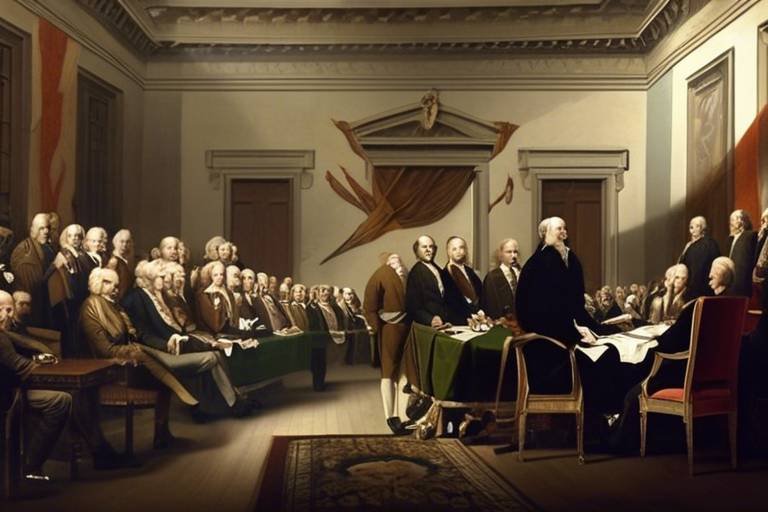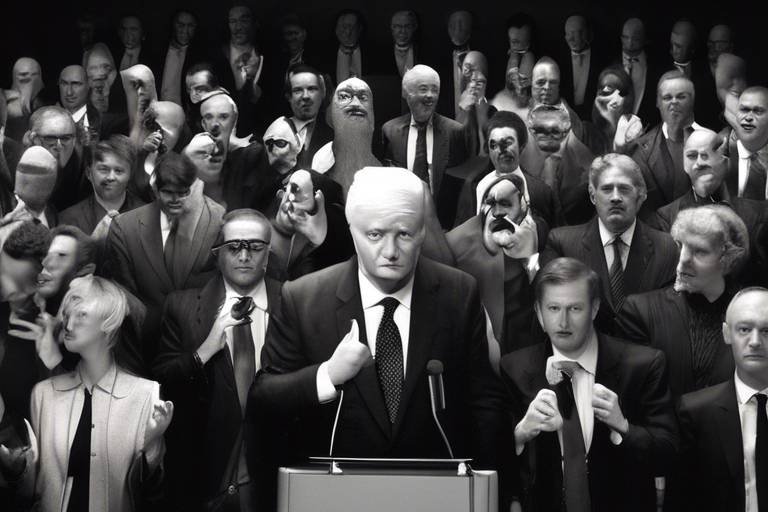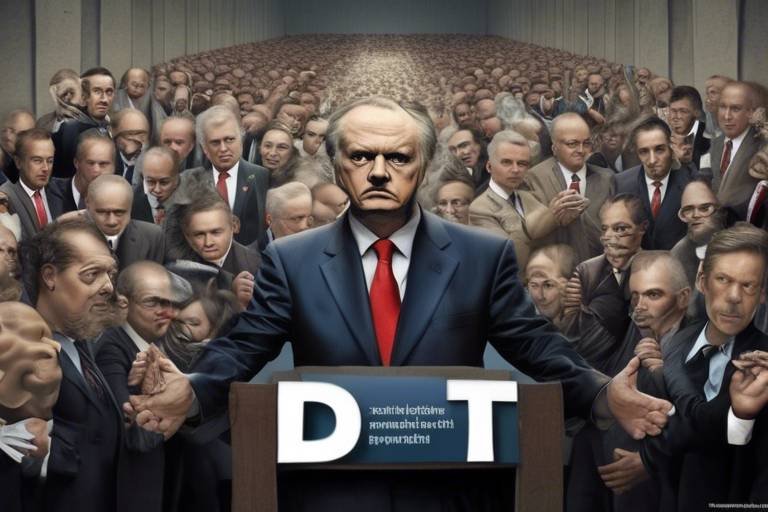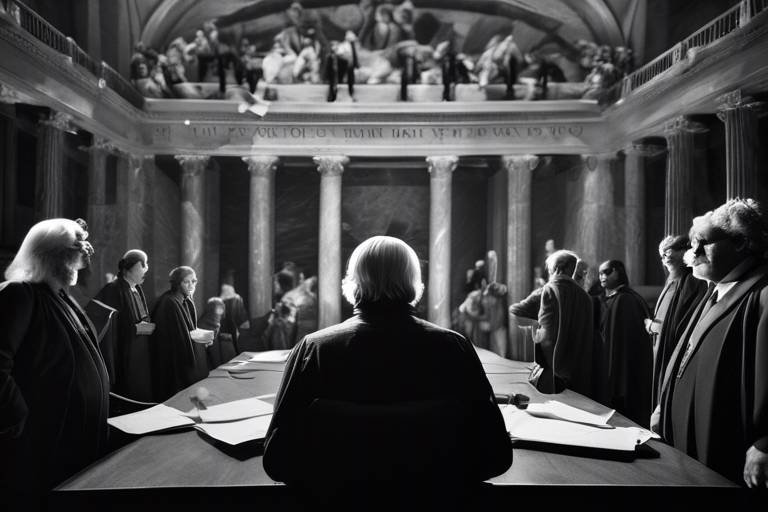Philosophy and the Politics of Mass Surveillance
The intersection of philosophy and politics regarding mass surveillance is a complex and often contentious landscape. With the advent of technology, our lives have become increasingly monitored, leading to a profound debate about the implications of such practices on our freedoms and rights. At its core, mass surveillance raises fundamental questions about the balance between security and privacy. Are we willing to sacrifice our individual liberties for the promise of safety? This dilemma is not just a political issue; it is deeply philosophical, touching on our very understanding of what it means to live in a free society.
To navigate this intricate relationship, we must first explore the ethical dilemmas that arise from surveillance practices. The moral implications are vast, as they challenge our beliefs about autonomy, consent, and the sanctity of personal space. For instance, consider the argument that surveillance is justified for the greater good—this utilitarian perspective posits that if the majority benefits from increased security, then infringing on the privacy of a few is acceptable. However, this raises a significant question: at what point does the infringement on individual rights become too great? The tension between utilitarianism and deontological ethics, which emphasizes the importance of individual rights regardless of the outcome, is a crucial aspect of this debate.
Moreover, the role of government in implementing surveillance measures cannot be overlooked. Governments often justify surveillance as a necessary tool for maintaining national security and public safety. However, this power comes with the risk of abuse. History has shown us that unchecked authority can lead to significant violations of civil liberties. In democratic societies, the need for accountability and transparency in surveillance practices is paramount. We must ask ourselves: how do we ensure that our governments remain answerable to the people they serve?
As we delve deeper into the ethical dilemmas of mass surveillance, we find ourselves grappling with several key questions. Is it ethical to monitor individuals without their consent? Can we truly claim to be free if our every move is being watched? These questions are not merely theoretical; they reflect the lived experiences of individuals in societies where surveillance is pervasive. The philosophical arguments surrounding these issues are rich and varied, providing a framework for understanding the implications of surveillance on our lives.
Governments wield significant power when it comes to surveillance, but with great power comes great responsibility. The question we must confront is whether governments can be trusted to use surveillance ethically and responsibly. The potential for abuse is ever-present, as seen in various historical and contemporary examples. The need for strict regulations and oversight is critical to ensure that surveillance is conducted in a manner that respects individual rights and freedoms.
Understanding the evolution of surveillance practices provides essential context for current debates. From the early days of telephone tapping to the advanced digital monitoring of today, surveillance has continually adapted to technological advancements. Significant historical events, such as the Cold War and the rise of the internet, have shaped modern surveillance policies. By examining these events, we can glean valuable lessons about the consequences of mass surveillance and the importance of safeguarding our civil liberties.
Specific instances of surveillance abuse serve as stark reminders of the dangers of unchecked authority. For example, the NSA's mass data collection practices revealed during the Edward Snowden leaks showcased the extent to which governments can overreach in the name of security. Such case studies illustrate the potential consequences of invasive surveillance practices, emphasizing the need for vigilance in protecting our rights.
In response to growing concerns about surveillance, various laws and regulations have been enacted to govern these practices. However, the effectiveness of these measures in protecting citizens' rights while allowing for necessary security measures remains a topic of debate. It is crucial to continually assess and refine these laws to ensure they strike the right balance between security and privacy.
Exploring different philosophical viewpoints on privacy reveals the complexity of this issue. Utilitarianism, which prioritizes the greatest good for the greatest number, often clashes with deontological ethics, which upholds the intrinsic value of individual rights. This philosophical framework helps us understand the ongoing struggle to define the value of privacy in an age of mass surveillance.
Advancements in technology have transformed the landscape of surveillance, enabling unprecedented levels of monitoring and data collection. While these technologies can enhance security, they also pose significant risks to individual privacy. The challenge lies in harnessing the benefits of technology while mitigating its potential harms.
Understanding how the public views mass surveillance is crucial for shaping future policies. Surveys and studies reveal a complex relationship between privacy, security, and trust in governmental institutions. As citizens become increasingly aware of surveillance practices, their attitudes towards privacy and security are likely to evolve.
Looking ahead, the future of surveillance and privacy remains uncertain. Emerging technologies, potential reforms, and the ongoing struggle to balance security with the protection of individual rights will shape the landscape of surveillance in the years to come. As we navigate this complex terrain, it is essential to remain vigilant and advocate for policies that prioritize individual freedoms.
- What is mass surveillance? Mass surveillance refers to the pervasive monitoring of individuals' activities, often conducted by governments or organizations, typically for security purposes.
- Is mass surveillance ethical? The ethics of mass surveillance are hotly debated, with arguments for and against it based on considerations of security, privacy, and individual rights.
- How can we protect our privacy? Individuals can protect their privacy through various means, including using encryption, being aware of their digital footprint, and advocating for stronger privacy laws.
- What role does technology play in surveillance? Technology enhances surveillance capabilities, allowing for more efficient monitoring and data collection, but it also raises significant privacy concerns.
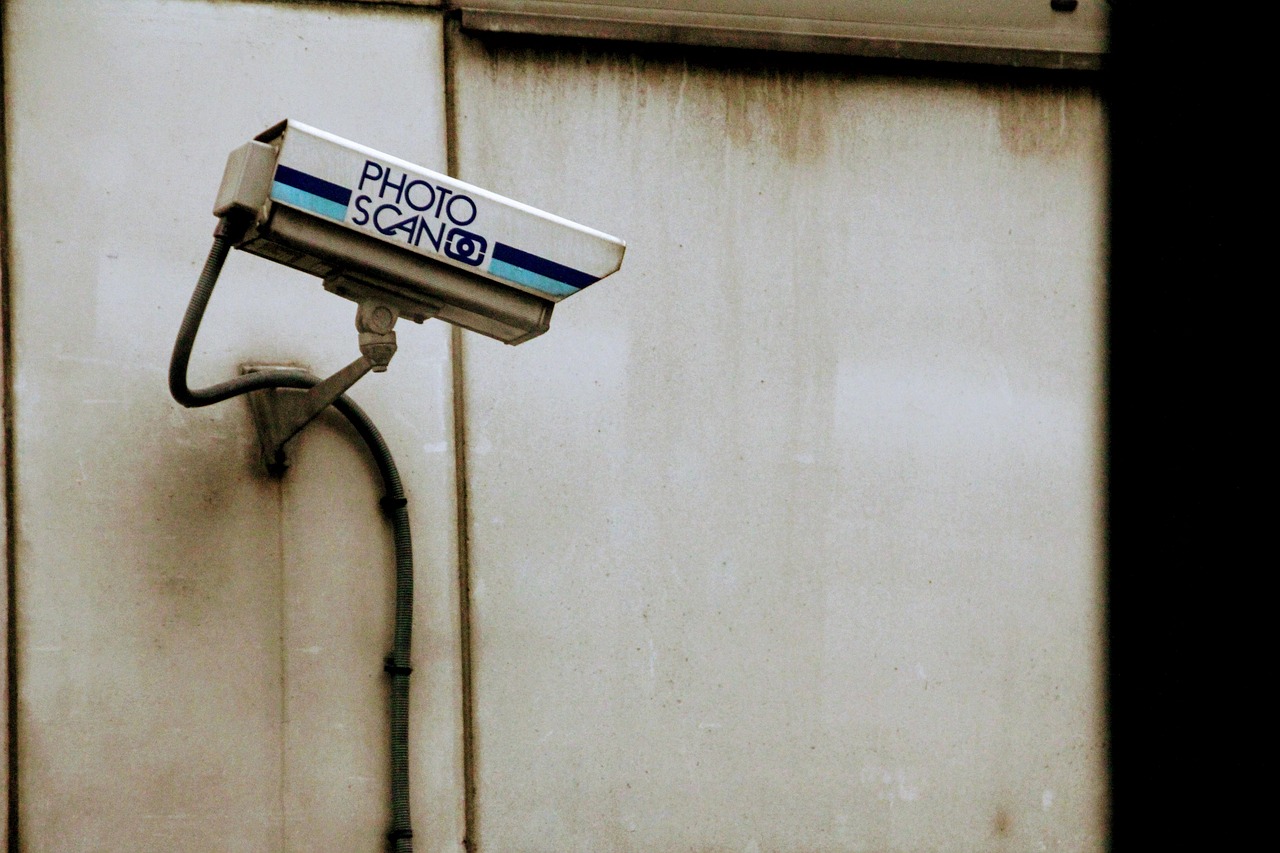
The Ethical Dilemmas of Surveillance
In today's world, where technology advances at an unprecedented pace, the ethical dilemmas surrounding mass surveillance have become increasingly pronounced. At the heart of this issue lies a fundamental question: Is the invasion of privacy justified by the promise of increased security? This debate is not merely academic; it touches the lives of every individual and poses significant moral implications for society as a whole. The tension between the need for security and the right to privacy creates a complex landscape that demands careful navigation.
On one side of the argument, proponents of surveillance often cite the need to protect citizens from potential threats. They argue that in a world rife with terrorism and crime, surveillance is a necessary tool for ensuring public safety. However, this perspective raises profound ethical questions. For instance, how do we define the boundaries of acceptable surveillance? When does the monitoring of individuals cross the line into unwarranted invasion of privacy? These questions are not just philosophical; they have real-world implications that affect the lives of millions.
Critics of mass surveillance argue that it creates a culture of fear and mistrust, where individuals feel constantly watched and judged. This pervasive sense of being under surveillance can lead to a chilling effect on free speech and expression. People may self-censor their thoughts and actions, fearing that their behavior will be scrutinized. The ethical dilemma here is whether the potential benefits of surveillance—such as crime prevention—outweigh the costs to individual freedom and autonomy.
Furthermore, the ethical implications of surveillance extend beyond individual rights. They also encompass broader societal impacts. For example, mass surveillance can disproportionately affect marginalized communities, leading to systemic discrimination and profiling. This raises the question of whether surveillance practices are being implemented fairly and equitably. Are certain groups being targeted more than others, and if so, what does that say about our societal values?
To illustrate these dilemmas, consider the following table that summarizes the key ethical concerns associated with mass surveillance:
| Ethical Concern | Description |
|---|---|
| Invasion of Privacy | Surveillance often involves monitoring individuals without their consent, raising questions about personal autonomy. |
| Chilling Effect | Constant monitoring may discourage individuals from expressing their views or engaging in dissent. |
| Discrimination | Surveillance practices may disproportionately target specific communities, leading to systemic biases. |
| Accountability | The lack of oversight in surveillance practices can lead to abuses of power and violations of rights. |
As we continue to grapple with these ethical dilemmas, it is essential to foster a dialogue that includes diverse perspectives. Engaging in discussions about the implications of surveillance can help us navigate the murky waters of ethics in a digital age. Ultimately, the challenge lies in finding a balance between the need for security and the fundamental rights of individuals. How can we ensure that the measures taken to protect society do not come at the expense of our shared values of freedom and privacy?
In conclusion, the ethical dilemmas surrounding mass surveillance are complex and multifaceted. They require us to reflect on our values and the kind of society we wish to create. As we move forward, it is crucial to advocate for transparency, accountability, and a commitment to protecting individual rights in the face of growing surveillance capabilities.
- What is mass surveillance? Mass surveillance refers to the extensive monitoring of individuals or groups, often conducted by governments or organizations, typically without their consent.
- Why is mass surveillance controversial? It raises significant ethical concerns regarding privacy, freedom of expression, and potential abuses of power.
- How can individuals protect their privacy? Individuals can use encryption tools, be mindful of their digital footprints, and advocate for stronger privacy laws.
- What role does technology play in surveillance? Advancements in technology have enhanced surveillance capabilities, making it easier to collect and analyze vast amounts of data.

The Role of Government in Surveillance
The role of government in surveillance is a complex and often contentious issue. As citizens, we expect our governments to protect us from threats, but at what cost? The delicate balance between ensuring public safety and respecting individual privacy rights is a tightrope that many governments walk daily. Surveillance practices have become increasingly sophisticated, with the advancement of technology allowing for unprecedented levels of monitoring. This raises critical questions about the extent of governmental power and the ethical implications of surveillance. Are governments justified in infringing on personal privacy in the name of security? Or does this represent a slippery slope towards authoritarianism?
Governments often argue that surveillance is necessary to prevent terrorism, crime, and other threats to society. They claim that by monitoring communications and collecting data, they can identify potential risks before they escalate. However, this rationale can lead to a dangerous normalization of invasive practices. For instance, the implementation of mass surveillance programs can create an environment of fear and mistrust among citizens, stifling free expression and dissent. The potential for abuse of power is alarming, as history has shown us that surveillance tools can be misused against political opponents, activists, or marginalized groups.
Moreover, there is a pressing need for accountability in democratic societies. Governments must establish clear guidelines and oversight mechanisms to govern surveillance practices. Transparency is essential; citizens should be informed about what data is being collected, how it is being used, and who has access to it. Without such measures, the risk of overreach increases, leading to a society where individuals are constantly monitored, creating a chilling effect on personal freedoms.
To illustrate the potential pitfalls of unchecked government surveillance, we can look at a few key points:
- Abuse of Power: Without proper checks, surveillance tools can be used to suppress dissent and target specific groups.
- Lack of Transparency: Citizens often remain unaware of the extent of surveillance, leading to a disconnect between government actions and public trust.
- Chilling Effect: The knowledge of being watched can deter individuals from expressing their opinions freely.
In summary, while the government’s role in surveillance is often justified by the need for security, it is crucial to maintain a vigilant stance on the potential for abuse. The conversation must shift towards establishing a framework that prioritizes both safety and privacy. As we navigate the complexities of modern surveillance, the principles of accountability, transparency, and respect for individual rights must remain at the forefront of this ongoing debate.
Q1: Why do governments implement mass surveillance?
A1: Governments often implement mass surveillance to enhance national security, prevent crime, and combat terrorism. However, the justification for such measures can lead to ethical dilemmas regarding privacy rights.
Q2: What are the risks of government surveillance?
A2: The risks include potential abuse of power, invasion of privacy, and a chilling effect on free speech. Without proper oversight, surveillance can be misused against political opponents or marginalized groups.
Q3: How can citizens hold governments accountable for surveillance practices?
A3: Citizens can advocate for transparency laws, participate in public discourse, and support organizations that promote civil liberties. Engaging in the political process and voting can also influence government policies on surveillance.
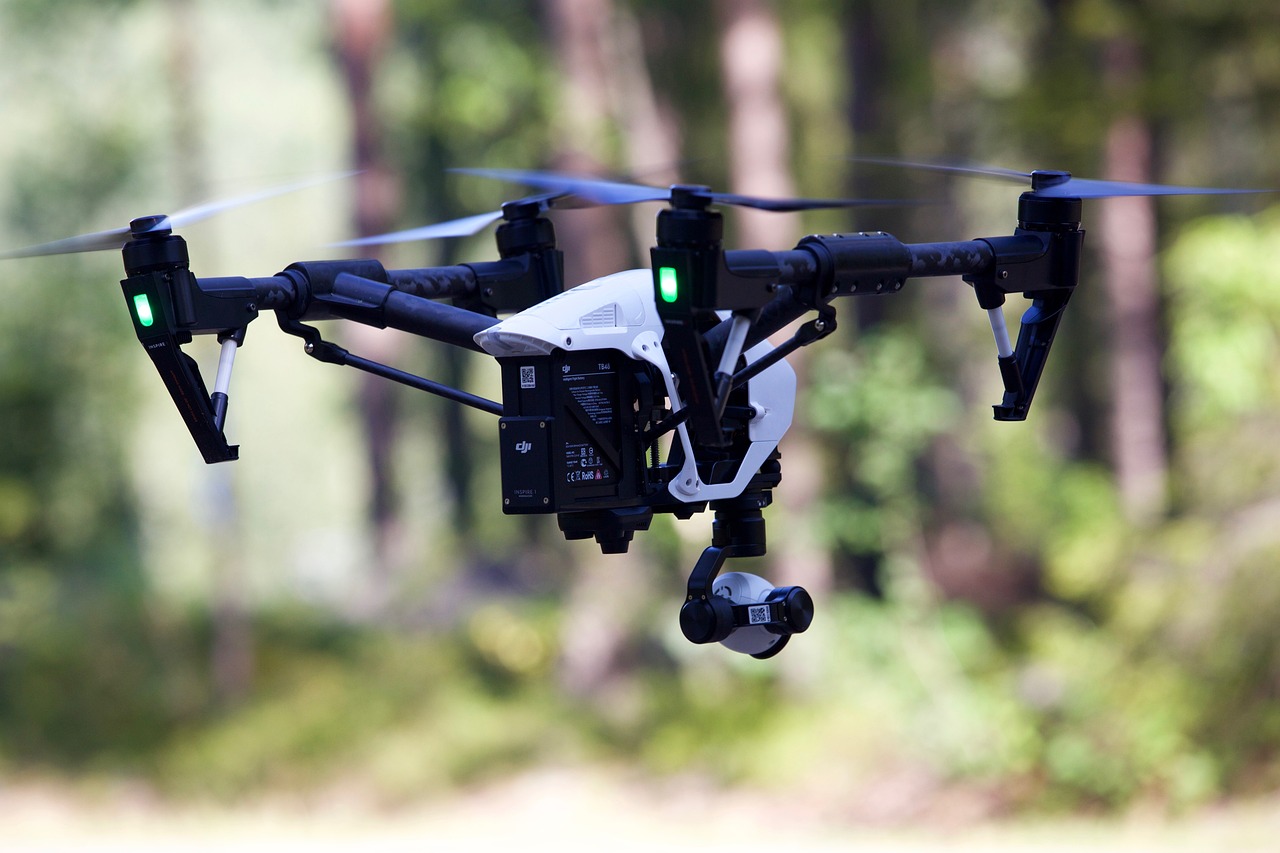
Historical Context of Surveillance
To truly grasp the complexities of mass surveillance today, we must first journey through the historical landscape that has shaped its evolution. Surveillance is not a modern phenomenon; it has roots that delve deep into history, reflecting society's ongoing struggle between security and privacy. From ancient civilizations to the digital age, the methods and motivations behind surveillance have transformed dramatically.
In ancient times, rulers relied on informants and spies to keep tabs on their subjects. The Roman Empire, for instance, utilized a network of informers to maintain control over its vast territories. This early form of surveillance was often justified as a means of preserving order and protecting the state. Fast forward to the 20th century, and we see the rise of more sophisticated surveillance techniques, particularly during times of war. The world wars saw governments employing extensive monitoring systems to track enemy movements and dissenters within their own borders.
As technology progressed, so did the methods of surveillance. The advent of the telegraph and later the telephone introduced new channels for monitoring communications. Governments began to recognize the potential of these technologies not just for communication, but as tools for surveillance. The Cold War era marked a significant turning point, with the establishment of agencies like the National Security Agency (NSA) in the United States, which was created to monitor foreign communications but quickly expanded its scope to include domestic surveillance.
In the latter part of the 20th century, the introduction of computer technology revolutionized surveillance practices. The ability to store vast amounts of data and analyze it in real-time opened new doors for monitoring individuals and groups. The Internet has further accelerated this trend, leading to the rise of digital surveillance. Today, governments and corporations alike have access to an unprecedented amount of personal data, often collected without explicit consent.
To illustrate the evolution of surveillance, let’s look at some key historical milestones:
| Year | Event | Description |
|---|---|---|
| 500 BC | Use of Informants | Rulers in ancient civilizations employed spies to gather intelligence. |
| 1914-1918 | World War I | Massive government surveillance to monitor enemy communications. |
| 1952 | Creation of NSA | Established to monitor foreign communications, later expanded to domestic. |
| 2001 | USA PATRIOT Act | Expanded surveillance capabilities post-9/11, raising privacy concerns. |
Understanding these historical contexts not only helps us appreciate the technological advancements but also highlights the ethical dilemmas that have persisted through time. Each era has left us with lessons about the potential for abuse and the necessity for oversight and accountability. As we navigate the current landscape of mass surveillance, it's crucial to reflect on these historical precedents to ensure we do not repeat the mistakes of the past.
In conclusion, the historical context of surveillance serves as a reminder that while the tools may have changed, the fundamental questions about privacy, security, and authority remain relevant. As we continue to grapple with these issues, we must remain vigilant and informed, ensuring that our rights are protected in an increasingly monitored world.
- What is mass surveillance? Mass surveillance refers to the extensive monitoring of individuals or groups, often conducted by governments or organizations, typically without their consent.
- How has technology changed surveillance? Advancements in technology, particularly in data collection and analysis, have greatly enhanced surveillance capabilities, allowing for real-time monitoring and data storage.
- What are the ethical concerns regarding surveillance? Ethical concerns include the invasion of privacy, potential abuse of power, and the balance between national security and individual rights.
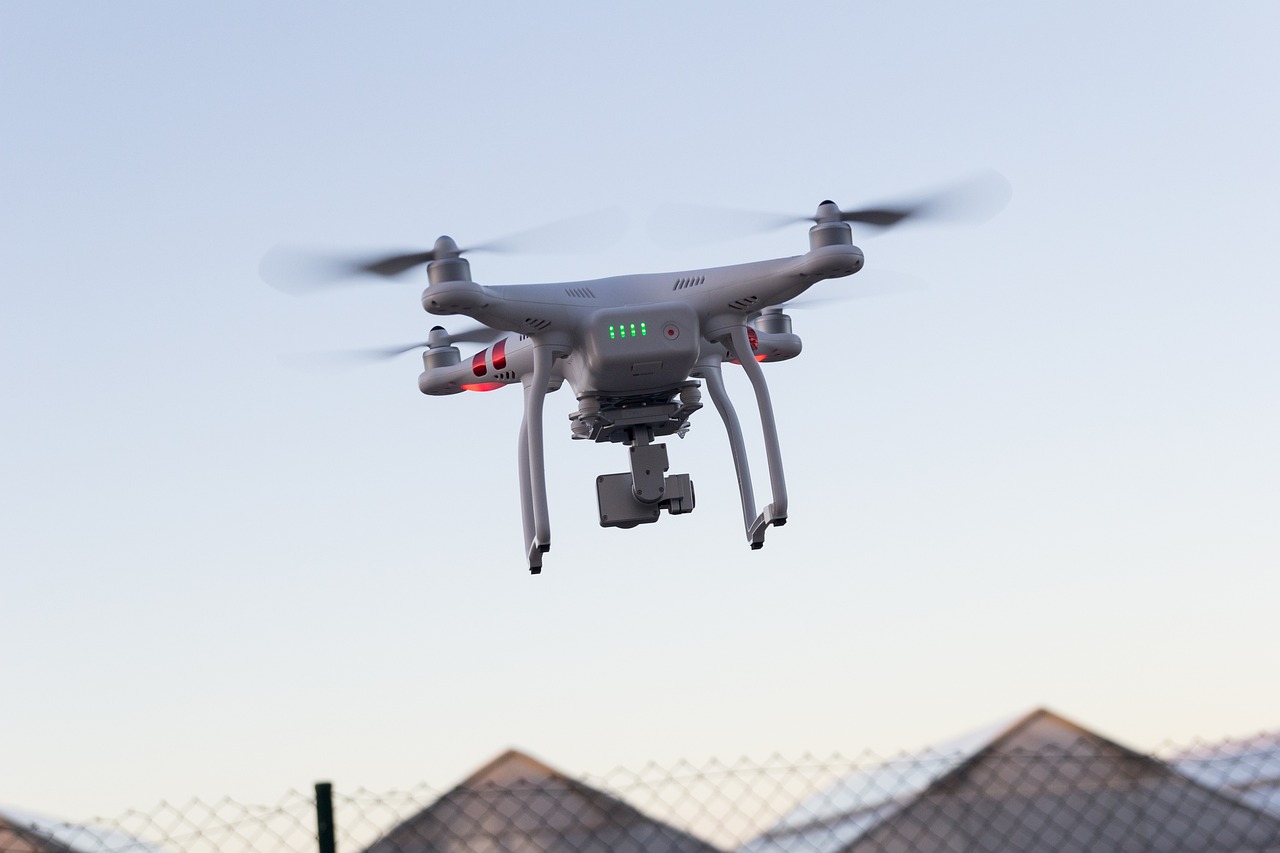
Case Studies in Surveillance Abuse
The issue of mass surveillance isn't just a theoretical debate; it has real-world implications that have been documented through various case studies. These instances provide a stark reminder of the potential for abuse when surveillance powers go unchecked. One of the most notorious examples is the NSA's PRISM program, revealed by Edward Snowden in 2013. This program allowed the U.S. National Security Agency to collect data from major tech companies, essentially spying on millions of individuals without their consent. The ethical ramifications of this revelation were profound, igniting a global conversation about the balance between national security and individual privacy.
Another significant case involves the UK's mass surveillance practices, especially highlighted during the 2011 London riots. The British government employed extensive monitoring techniques, including facial recognition technology and social media surveillance, to identify and apprehend individuals involved in the unrest. While the intention was to restore order, critics argue that such measures infringe on civil liberties and set a dangerous precedent for future government actions.
In addition to these high-profile cases, there are lesser-known but equally concerning instances of surveillance abuse. For example, the Chicago Police Department's use of predictive policing software has raised alarms about racial profiling and the unjust targeting of specific communities. This software analyzes data to predict where crimes are likely to occur, but it often disproportionately affects marginalized neighborhoods, leading to increased police presence and scrutiny. The ethical implications of such practices are staggering, as they raise questions about fairness, justice, and the fundamental rights of individuals.
To further illustrate the dangers of unchecked surveillance, we can look at the following table, which summarizes key case studies of surveillance abuse:
| Case Study | Year | Description |
|---|---|---|
| NSA PRISM Program | 2013 | Mass data collection from tech companies without user consent. |
| UK Surveillance during Riots | 2011 | Extensive monitoring of social media and public spaces to identify rioters. |
| Chicago Predictive Policing | Ongoing | Use of algorithms to predict crime locations, often targeting marginalized communities. |
These examples underscore the urgent need for robust oversight and accountability mechanisms to prevent abuse. As we navigate the complexities of surveillance in our society, it becomes increasingly vital to engage in discussions about ethical standards and the protection of individual rights. The lessons learned from these case studies should serve as a call to action for citizens and policymakers alike, to ensure that the balance between security and privacy is maintained.
- What is mass surveillance? Mass surveillance refers to the extensive monitoring of individuals' activities, often conducted by governments or organizations, typically without their knowledge or consent.
- How does mass surveillance affect privacy? It can significantly infringe on individual privacy rights, leading to a lack of trust in governmental institutions and a chilling effect on free expression.
- What are some examples of surveillance abuse? Notable examples include the NSA's PRISM program, the UK's monitoring during the London riots, and predictive policing practices in Chicago.
- What can be done to prevent surveillance abuse? Implementing strict oversight, transparency measures, and clear legal frameworks can help protect citizens' rights while allowing for necessary security measures.
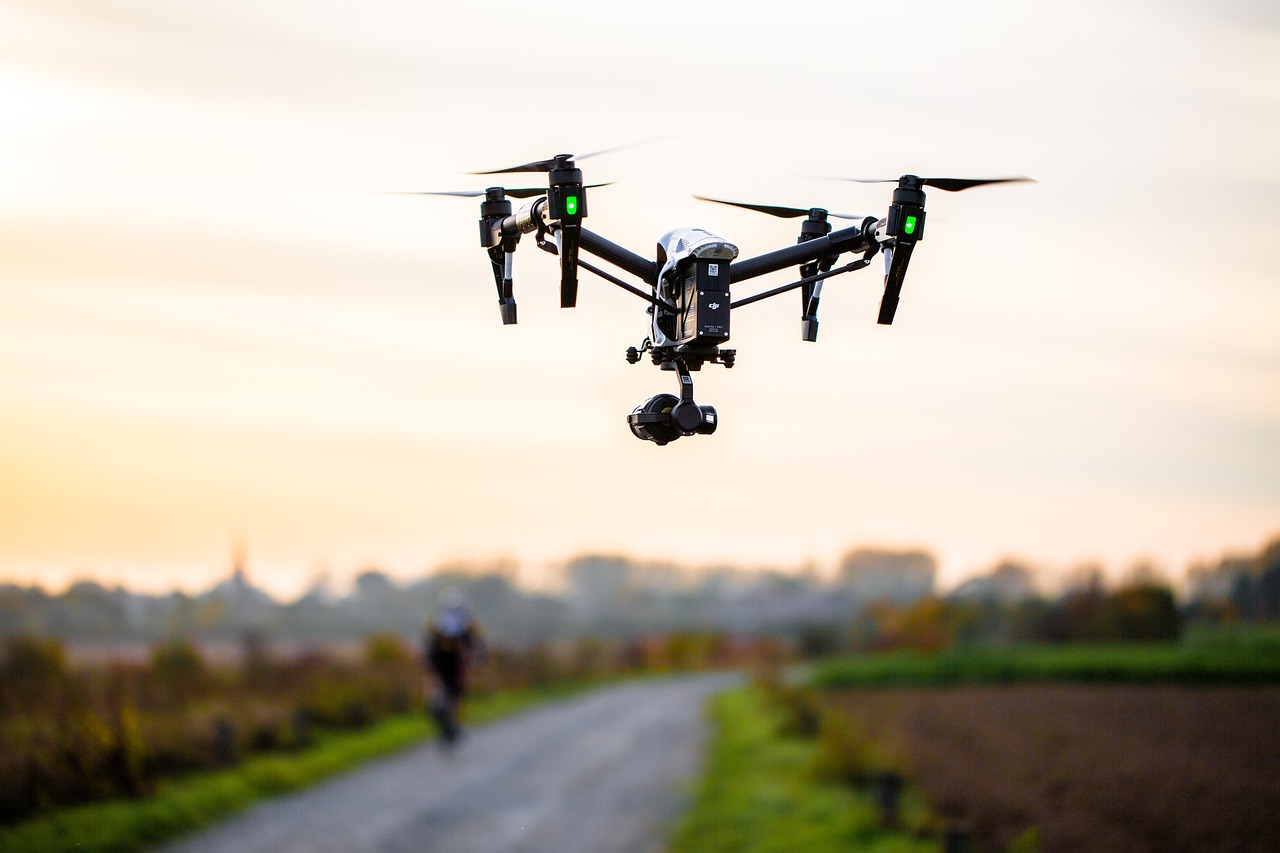
Legislative Responses to Surveillance
The rapid advancement of surveillance technology has prompted a corresponding evolution in legislative frameworks aimed at regulating its use. Governments worldwide have grappled with the challenge of crafting laws that not only ensure national security but also protect citizens' rights to privacy. Striking this balance is no easy feat, as the implications of surveillance reach deep into the fabric of democratic societies.
In many countries, the legislative response to mass surveillance has often been reactive rather than proactive. For instance, following significant events such as the September 11 attacks in the United States, there was a surge in legislation aimed at enhancing surveillance capabilities. The USA PATRIOT Act, enacted in 2001, is a prime example of this trend, expanding the government's authority to monitor communications and access personal data without the traditional checks and balances. While proponents argue that such measures are essential for national security, critics contend that they erode civil liberties and set a dangerous precedent for government overreach.
To counteract these concerns, some jurisdictions have introduced laws aimed at increasing transparency and accountability in surveillance practices. For example, the General Data Protection Regulation (GDPR) in the European Union has established strict guidelines on data collection and processing, empowering individuals with greater control over their personal information. Under the GDPR, organizations must provide clear consent mechanisms and justify the necessity of data collection, which serves to protect citizens from invasive surveillance tactics.
Moreover, the legislative landscape is not uniform across the globe. Countries like Germany have enacted robust privacy laws that impose stringent limitations on surveillance activities, reflecting a cultural emphasis on protecting individual rights. In contrast, nations with authoritarian regimes often lack meaningful legislative oversight, leading to widespread abuse of surveillance powers. This disparity underscores the importance of democratic governance in shaping effective surveillance laws.
As we move forward, it is crucial for lawmakers to engage in ongoing dialogue with civil society, technology experts, and ethicists to ensure that surveillance measures are not only effective but also just. The introduction of sunset clauses in surveillance legislation—provisions that require periodic review and renewal of laws—could serve as a valuable tool for maintaining this balance. This approach encourages legislators to continuously assess the necessity and impact of surveillance measures, fostering an environment of accountability.
In summary, while legislative responses to surveillance are essential in safeguarding privacy rights, they must also be adaptable to the ever-changing landscape of technology and societal values. The ongoing challenge lies in crafting laws that not only address immediate security concerns but also uphold the foundational principles of democracy and individual freedom.
- What is mass surveillance? Mass surveillance refers to the extensive monitoring of individuals' activities, communications, and behaviors, often conducted by governments or organizations without the consent of those being observed.
- How do laws regulate surveillance? Laws regulate surveillance by establishing guidelines that dictate when and how surveillance can be conducted, ensuring that individuals' rights to privacy are respected while allowing for necessary security measures.
- What are the potential abuses of surveillance? Potential abuses of surveillance include unauthorized data collection, invasion of privacy, and misuse of information for political or personal gain, which can lead to a chilling effect on free speech and dissent.
- How does technology impact surveillance laws? Technological advancements can outpace existing laws, creating gaps in regulation that may allow for invasive practices. Legislators must continually adapt laws to address new technologies and their implications for privacy.

Philosophical Perspectives on Privacy
When we dive into the , it’s like peeling an onion—layer after layer reveals new insights and debates. Privacy isn't just a personal preference; it's a fundamental aspect of what it means to be human. It’s about our ability to control who knows what about us and how much of ourselves we choose to share. But this control is increasingly challenged by the rise of mass surveillance, which raises some profound ethical questions. Can we justify the invasion of privacy in the name of security? Are we sacrificing our freedoms for a false sense of safety? These questions aren't just rhetorical; they demand serious consideration.
One of the most prominent philosophical frameworks that tackle privacy is utilitarianism. This perspective argues that actions are right if they promote the greatest happiness for the greatest number. From this viewpoint, mass surveillance could be seen as a necessary evil. By monitoring individuals, governments could potentially prevent crime and terrorism, thereby maximizing societal well-being. However, this raises a critical dilemma: at what point does the collective good infringe upon individual rights? The slippery slope of sacrificing privacy for security can lead to a society where fear trumps freedom, and that’s a dangerous territory.
On the flip side, we have deontological ethics, championed by philosophers like Immanuel Kant. This school of thought emphasizes the importance of duty and moral principles over outcomes. According to deontological views, individuals have an inherent right to privacy that should not be violated, regardless of the potential benefits to society. This perspective asserts that treating people as mere means to an end—like using surveillance to achieve security—disregards their intrinsic value as human beings. In this light, the act of surveilling individuals without their consent is not just an ethical breach; it’s a violation of their dignity.
As we explore these philosophical perspectives, it’s essential to recognize that privacy is not a black-and-white issue. It exists on a spectrum, influenced by cultural, social, and technological contexts. For instance, in some cultures, community oversight may be more accepted than in others where individualism reigns supreme. This cultural lens shapes how privacy is perceived and valued. In a world where technology continuously evolves, our understanding of privacy must also adapt. With advancements like facial recognition and data mining, the boundaries of what constitutes acceptable surveillance are constantly shifting.
To further illustrate the philosophical clash surrounding privacy, consider the following table that contrasts the key arguments of utilitarianism and deontological ethics:
| Philosophical Perspective | Main Argument | Implications for Privacy |
|---|---|---|
| Utilitarianism | Actions are justified if they promote the greatest happiness. | Privacy can be sacrificed for the greater good. |
| Deontological Ethics | Individuals have inherent rights that must be respected. | Privacy is a fundamental right that should not be violated. |
Ultimately, navigating the philosophical landscape of privacy in the age of mass surveillance requires a delicate balance. We must ask ourselves: how do we protect individual rights while ensuring societal safety? The ongoing dialogue between these philosophical perspectives is crucial as we forge ahead into an uncertain future. As technology continues to evolve, so too must our understanding of privacy and the ethical frameworks that support it. In a world where our every move can be monitored, the fight for privacy is not just a personal battle; it's a collective one, demanding vigilance and a commitment to uphold our fundamental rights.
- What is the main ethical dilemma surrounding mass surveillance? The primary issue is balancing the need for security against the right to privacy, raising questions about the justification of invasive monitoring.
- How do different philosophical perspectives view privacy? Utilitarianism supports sacrificing privacy for the greater good, while deontological ethics emphasizes the importance of individual rights and dignity.
- Why is privacy considered fundamental? Privacy is essential for autonomy, personal freedom, and the ability to control one’s own life and information.
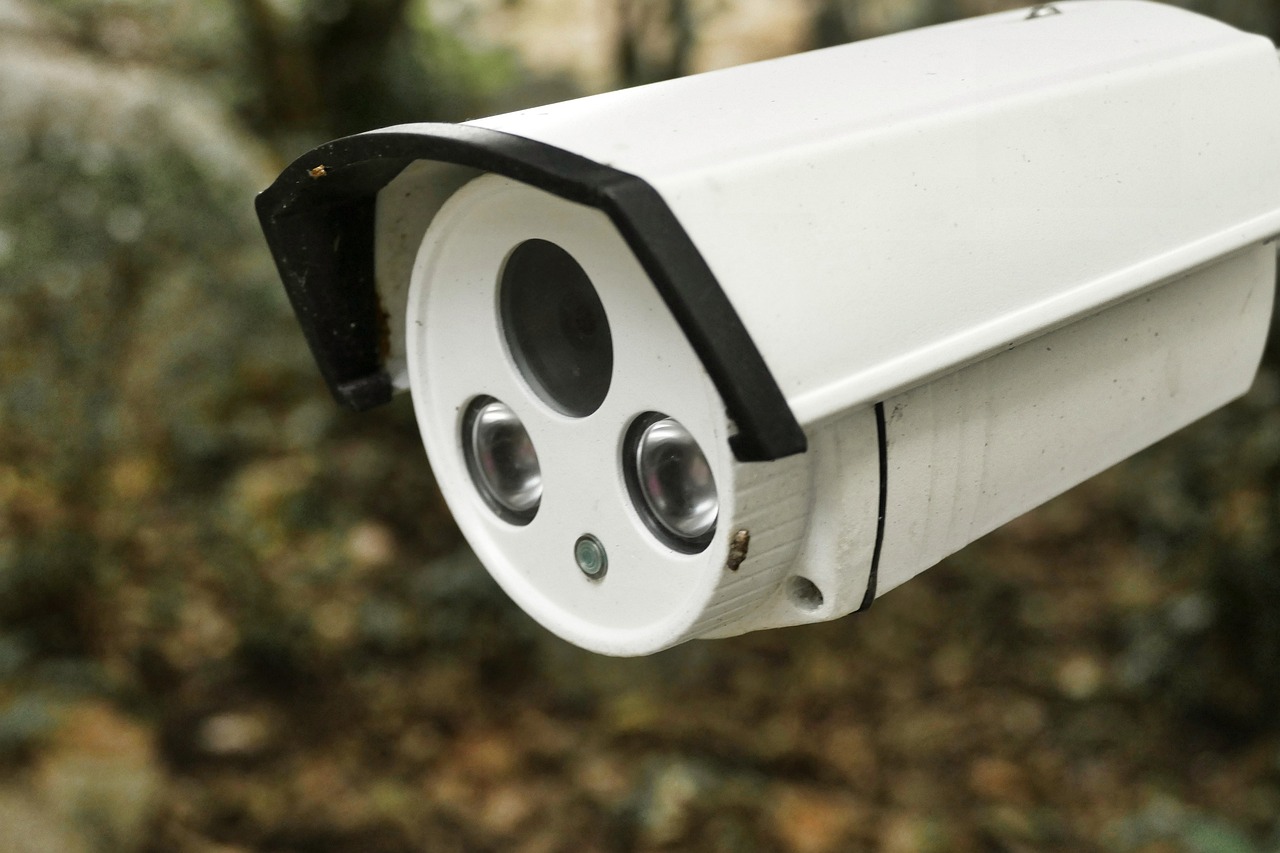
The Impact of Technology on Surveillance Practices
The rapid advancement of technology has revolutionized the way surveillance is conducted, transforming it from a labor-intensive process into a highly efficient and pervasive system. In today's world, the capabilities of surveillance tools have expanded exponentially, leading to a situation where virtually every aspect of our lives can be monitored. Imagine a world where your every move, every online interaction, and even your conversations can be tracked—this is the reality we face now. The integration of technologies such as artificial intelligence, facial recognition, and the Internet of Things (IoT) has created a surveillance landscape that is both fascinating and frightening.
One of the most significant developments in surveillance technology is the use of artificial intelligence. AI algorithms can analyze vast amounts of data at lightning speed, identifying patterns and anomalies that would be impossible for humans to detect. This technology enables law enforcement agencies to predict criminal behavior and preemptively act, but it raises serious ethical questions. Are we willing to sacrifice our privacy for the promise of enhanced security? The answer to this question is not straightforward, as it involves weighing the benefits against the potential for abuse.
Moreover, the proliferation of surveillance cameras in public spaces has become a common sight. These cameras, often equipped with advanced features like facial recognition, can track individuals across different locations. While proponents argue that these measures enhance public safety, critics warn about the chilling effect on personal freedoms. It’s akin to living in a glass house—while it may feel safe, the lack of privacy can be stifling.
In addition to cameras, the rise of the Internet of Things has introduced a new dimension to surveillance. Everyday devices, from smart speakers to connected appliances, can collect data about our habits and preferences. This data, often shared with third-party companies, can be used for targeted advertising but also poses risks regarding personal privacy. For instance, consider how your smart thermostat knows when you're home or away; while convenient, it also reveals your schedule to anyone who has access to that data.
To illustrate the impact of technology on surveillance practices, let's take a look at the following table that summarizes key technologies and their implications:
| Technology | Application | Implications |
|---|---|---|
| Artificial Intelligence | Data analysis and predictive policing | Increased efficiency but potential bias and discrimination |
| Facial Recognition | Identification in public spaces | Enhanced security vs. invasion of privacy |
| IoT Devices | Data collection from personal devices | Convenience vs. data security risks |
As we navigate this new landscape, it’s crucial to consider the balance between surveillance and privacy. The convenience offered by technology often comes at a cost, and society must engage in a dialogue about the extent to which we are willing to allow surveillance in our daily lives. Are we prepared to accept a world where our actions are constantly monitored, or do we value our privacy more than the perceived safety that such measures provide?
In conclusion, the impact of technology on surveillance practices is profound and multifaceted. While advancements can enhance security and efficiency, they also pose significant risks to individual privacy. As citizens, we must remain vigilant and advocate for policies that protect our rights while ensuring that technology serves the public good without infringing upon our freedoms.
- What is mass surveillance? - Mass surveillance refers to the monitoring of a large number of people, often without their consent, through various technologies.
- How does technology enhance surveillance? - Technology, such as AI and IoT, allows for faster data collection and analysis, enabling more comprehensive monitoring.
- What are the ethical concerns regarding surveillance? - Ethical concerns include privacy violations, potential abuse of power, and the implications of constant monitoring on personal freedoms.
- Is there a way to balance security and privacy? - Striking a balance requires transparent policies, legal frameworks, and public discourse on the limits of surveillance.

Public Perception of Surveillance
The public's perception of mass surveillance is a complex tapestry woven from threads of fear, trust, and the desire for security. As technology advances at breakneck speed, the conversation around surveillance has become more prominent than ever. People often find themselves caught in a paradox: they want to feel safe and protected, but at what cost to their personal privacy? This dilemma is not just theoretical; it affects daily life in profound ways.
Surveys have shown that opinions on surveillance can be significantly influenced by current events. For instance, after major terrorist attacks, there tends to be a spike in public support for increased surveillance measures. Conversely, when instances of surveillance abuse come to light, such as the revelations from whistleblowers or data breaches, public sentiment can swiftly turn against government practices. This cyclical nature of public opinion raises an important question: How can we strike a balance between security and privacy?
To better understand this dynamic, let’s take a closer look at some statistics that illustrate public sentiment towards surveillance:
| Survey Year | Percentage Supporting Surveillance for Security | Percentage Concerned About Privacy Invasion |
|---|---|---|
| 2015 | 65% | 70% |
| 2018 | 60% | 75% |
| 2021 | 58% | 80% |
As we can see from the table, while a majority of people still support surveillance for the sake of security, there is a growing concern about privacy invasion. This increasing apprehension reflects a deeper understanding of how surveillance technologies can be misused. Moreover, the rise of social media has amplified these concerns, as personal data is often collected and used without explicit consent. Is it any wonder that people are becoming more skeptical of government assurances of safety?
Furthermore, the public's perception is also shaped by cultural attitudes towards authority and individual rights. In some societies, there is a strong belief in the necessity of surveillance to maintain order and safety. In contrast, other cultures prioritize personal freedoms and view surveillance as an infringement on civil liberties. This divergence raises an important point: How do societal values influence the acceptance of surveillance measures?
In the end, public perception of surveillance is not static; it evolves with time and context. As citizens become more informed about the implications of surveillance technologies, their views may shift. The challenge lies in fostering a dialogue that respects both the need for security and the fundamental right to privacy. What role do we, as individuals, play in shaping this ongoing conversation?
- What are the main concerns regarding mass surveillance? Many individuals worry about privacy invasion, data misuse, and the potential for government overreach.
- How does public perception influence surveillance policies? Public sentiment can pressure governments to either tighten or loosen surveillance practices based on the prevailing attitudes towards security and privacy.
- What can individuals do to protect their privacy? Individuals can use privacy tools, be mindful of the information they share online, and advocate for stronger privacy laws.

The Future of Surveillance and Privacy
As we look to the horizon, the future of surveillance and privacy seems to be a complex tapestry woven with threads of technology, ethics, and societal values. The rapid advancement of technology is like a double-edged sword—it offers incredible capabilities for security but also raises serious concerns about individual privacy. As we navigate this intricate landscape, one must ponder: how do we strike a balance between the need for safety and the right to privacy?
Emerging technologies, such as artificial intelligence and facial recognition, are transforming surveillance practices at an unprecedented rate. Imagine a world where algorithms can predict criminal activity before it happens, or where your every move is tracked by an array of cameras equipped with cutting-edge technology. While these innovations could enhance public safety, they also pose significant risks. The potential for misuse is alarming; what happens when the tools meant to protect us become instruments of oppression?
In this future, the concept of consent is evolving. The question arises: do we truly consent to being surveilled in exchange for security? Many people might feel that they have no choice but to accept invasive measures for the sake of safety. This paradox is where the philosophical debate intensifies. Should we prioritize collective security over individual freedoms, or is it essential to uphold personal privacy as a fundamental human right?
Moreover, the role of legislation and regulation in this future cannot be overlooked. Governments worldwide are grappling with how to implement laws that protect citizens while allowing for necessary surveillance. The effectiveness of these regulations will largely depend on public engagement and transparency. If citizens remain passive, we risk creating a surveillance state where privacy becomes a relic of the past. On the other hand, active public discourse can lead to robust frameworks that safeguard individual rights.
As we contemplate the future, it is crucial to consider the societal impact of surveillance. Will we live in a society where trust in institutions is eroded due to constant monitoring? Or will we find a way to coexist with surveillance technologies while maintaining a sense of autonomy and dignity? The answers to these questions will shape the landscape of our future.
In conclusion, the future of surveillance and privacy is not predetermined; it is a dynamic interplay of technology, ethics, and public sentiment. As we stand at this crossroads, we must engage in thoughtful dialogue about the direction we wish to take. Will we allow our fears to dictate our policies, or will we strive for a future where security and privacy coexist harmoniously?
- What are the main concerns regarding mass surveillance?
Concerns include invasion of privacy, potential misuse of data, and the erosion of civil liberties. - How can individuals protect their privacy in a surveillance-heavy society?
Individuals can use encryption tools, be mindful of their digital footprints, and advocate for privacy rights. - What role does legislation play in surveillance practices?
Legislation helps establish guidelines and limits on surveillance to protect citizens' rights while addressing security needs. - Will technology always outpace regulation?
While technology evolves rapidly, public awareness and advocacy can influence regulatory frameworks to keep pace.
Frequently Asked Questions
- What is mass surveillance?
Mass surveillance refers to the extensive monitoring of a population's activities, often conducted by governments or organizations, using various technologies. It aims to collect data on individuals without their consent, raising significant ethical and privacy concerns.
- What are the ethical dilemmas associated with mass surveillance?
Mass surveillance poses serious ethical dilemmas, primarily revolving around the conflict between security and privacy. While some argue that it is necessary for national security, others contend that it unjustly invades personal privacy and undermines individual freedoms.
- How does government surveillance impact citizens?
Government surveillance can lead to a chilling effect on free speech, as individuals may feel less inclined to express their opinions if they believe they are being watched. Moreover, it raises concerns about the potential abuse of power and lack of accountability in democratic societies.
- What historical events have influenced modern surveillance practices?
Key historical events, such as the Cold War and the rise of the internet, have significantly shaped surveillance practices. These events highlighted the need for security measures but also exposed the risks of invasive monitoring, prompting ongoing debates about ethical boundaries.
- Can you provide examples of surveillance abuse?
Yes, notable cases of surveillance abuse include instances where governments have monitored political activists, journalists, or minority groups without justification. These abuses illustrate the dangers of unchecked authority and the potential for violating civil liberties.
- What legislative measures exist to regulate surveillance?
Various laws and regulations, such as the General Data Protection Regulation (GDPR) in Europe and the USA PATRIOT Act, aim to govern surveillance practices. However, their effectiveness in protecting citizens' rights while ensuring security remains a topic of debate.
- How do philosophical perspectives shape our understanding of privacy?
Philosophical perspectives, like utilitarianism and deontological ethics, provide frameworks for understanding privacy. Utilitarianism often prioritizes the greater good, while deontological ethics emphasizes the intrinsic value of individual rights, leading to differing views on privacy in the context of surveillance.
- What role does technology play in surveillance practices?
Advancements in technology have dramatically transformed surveillance capabilities, enabling more sophisticated data collection and monitoring. While these technologies can enhance security, they also pose risks to privacy and civil liberties, creating a complex landscape for society.
- How does the public perceive mass surveillance?
Public perception of mass surveillance varies widely. Some individuals prioritize security and support surveillance measures, while others are deeply concerned about privacy violations. Surveys often reveal a general mistrust of governmental institutions, highlighting the need for transparency and accountability.
- What does the future hold for surveillance and privacy?
The future of surveillance and privacy is uncertain, with emerging technologies continually reshaping the landscape. Ongoing discussions about reforms, ethical considerations, and the balance between security and individual rights will play a crucial role in determining how society navigates these challenges.







